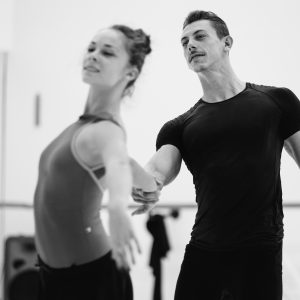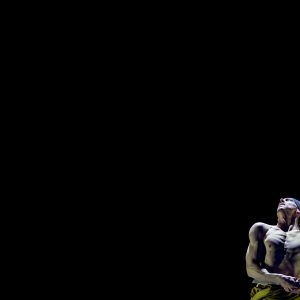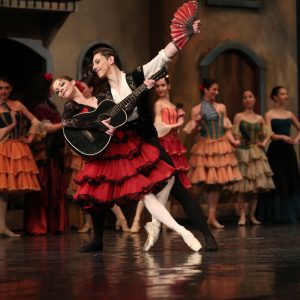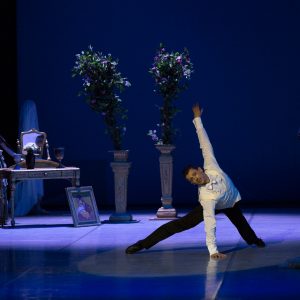By Jelena Lagator
The job of a dancer is always related to a continuous learning. Ballet is an art that is constantly changing
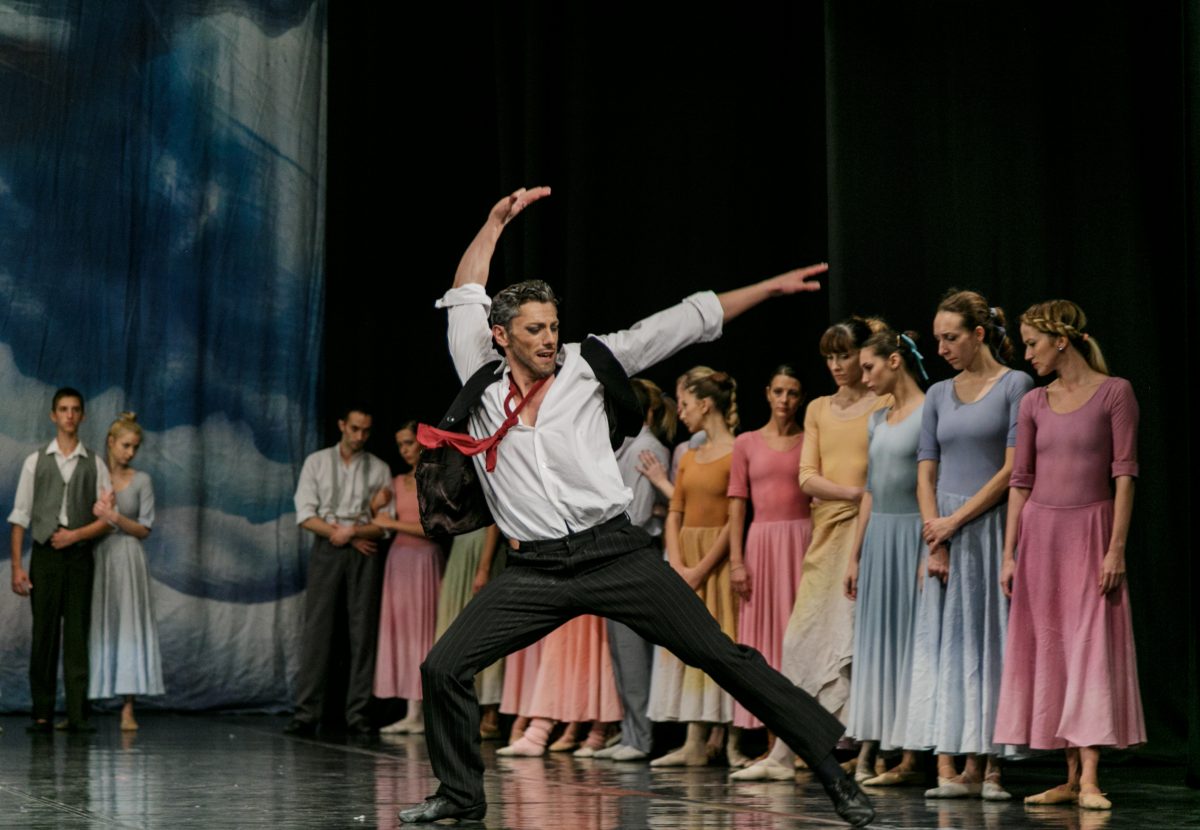
One of the most charismatic and expressive dancers of his generation, Andrei Colceriu the principal dancer at SNT Ballet, has dedicated his life to the ballet.
He decided to become a dancer as a child, and after his graduation in Cluj he arrived in Novi Sad in 2003. A new state, new city, new theater, unknown people, language, everything was a very interesting experience. In the beginning he started dancing in the ensemble, like everyone else. In a short time pedagogues, choreographers, colleagues, noticed his work and he started to dance first smaller and then bigger roles. The roles came one after another and soon he became the SNT Ballet principal dancer.
A few weeks ago, on May 14, the premiere of the ballet “Madame Butterfly” was held, choreographed and directed by Peter Breuer, the cooperation of SNT and the Austrian ballet company Europaballet. You play the father of the young Cho-Cho-San. You appear in the scene of the Cho-Cho-San’s memory and leave an extremely striking mark. What has the interpretation of this character brought you?
I could point out that in this play, my character, the Cho-Cho-San’s father, appears only in the first act for seven, eight minutes. During that time I bring the elements together both dramatic and technical, at the same time paying attention to other characters. Another segment that I would like to single out is the encounter with Japanese philosophy, costume, music. I deeply enjoyed the innovations and new knowledge I absorbed during the process of creation.
It is impossible to achieve a professional success if the price is not high
Your roles are technically always precise and you identify with the character in a very convincing way, whether you play a neoclassic or a classic roles. Which ones would you single out as the most impressive in your career so far?
It is quite difficult to single out a few roles. As time passes, my roles change and so do I. Each period of my life is marked by some role, sometimes it is a role from the classical repertoire, sometimes it is neoclassical or some other style. They are really numerous. I am very proud of my Basil from the ballet “Don Quixote”, and Zorba from the ballet “Zorba the Greek”. I truly enjoyed those characters from the moment I’ve met them.
Does professional success come at a price?
Great success implies giving up many everyday habits mostly taken for granted. It is impossible to achieve a professional success if the price is not high. By that I mean that I have to exercise every day, to take care responsibly of my diet, not to injure myself and so much more. Most of my life is work and just work. There is very, very little time for socializing, going out, traveling.
Who have been your role models, inspiration, teachers over the years?
The job of a dancer is always related to a continuous learning. Ballet is an art that is constantly changing. New directions are coming, new choreographers, new interpretations. I enjoy learning from the best pedagogues and dancers. Luckily, this is the age of the Internet and it is enough to see the best players with only one click and to try to work like them. On the other hand, pedagogues are the important part of an invisible team, with whom we spend a lot of time preparing our roles. I achieved the greatest satisfaction working with Mr. Bakhram Yuldashev and Mr. De Palma.
How do you see the ballet scene in Serbia? What do you think needs to be improved?
The ballet scene in Serbia is small, apart from the SNT Ballet and the National Theater Ballet in Belgrade, it is almost non-existent. There are few performances, premieres and guest appearances. What is missing is the flow of ideas and artists. Every new arrival of pedagogues, dancers, choreographers, is a new energy that works so that we ask ourselves where are we and where do we want to be.
